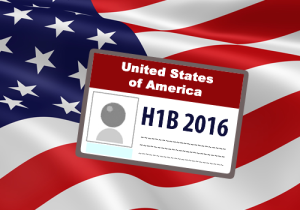H-1B Visa Op-Ed in Pittsburgh Post-Gazette
Yesterday’s edition of the Pittsburgh Post-Gazette contained an important op-ed piece coauthored by regional leaders on the necessity of increasing the H-1B visa cap. The authors are Sandy K. Baruah and Joseph D. Roman and Dennis Yablonsky. Sandy K. Baruah is president and CEO of the Detroit Regional Chamber. Joseph D. Roman is president and CEO of the Greater Cleveland Partnership. Dennis Yablonsky is CEO of the Allegheny Conference on Community Development and its affiliate, the Greater Pittsburgh Chamber of Commerce. As regional business leaders focused on improving local economies, they forcefully argue that the visa cap is hampering local businesses from achieving their potentials.
They start by recapping the problem. Within the first five days of April (when H-1B petitions for Fiscal Year 2017 are accepted), over 230,000 H-1B applications were filed for 85,000 spots. An H-1B requires the professional occupation to be a specialty occupation and for the beneficiary to be trained in that specialty occupation, requiring the attainment of Bachelor’s or its equivalent. There are a myriad of other requirements necessary for an employer to win its H-1B case. The problem is that 2/3 of cases do not even become cases. They are summarily returned to the petitioning employer.
Here are some valuable quotes:
The Great Lakes region has an acute need for highly skilled domestic and international talent to continue the economic renaissance occurring across our states. This is one of the reasons that the Great Lakes Metro Chambers Coalition, a group of nearly 40 chambers of commerce covering 12 states in the Great Lakes region, considers reform of immigration for highly skilled workers a key policy goal. Our chambers, and the employers we represent, believe high-skilled immigration is a critical part of the solution to closing the skilled- worker gap.
Encouraging legal, high-skilled immigration is vital for growth and prosperity. Shifting demographics are depleting talent pools and jeopardizing economic competitiveness in many Great Lakes metro areas. The result: serious shortages in the replacement of advanced-manufacturing workers in the Great Lakes. Add to that, in 2015, Midwest states saw STEM job postings total more than 2.4 million, an increase of more than 50 percent from 2014. This growth is happening at a time when many of the Midwest states’ populations are stagnant and our K-12 educational systems are struggling to address STEM preparation. If the rebirth of manufacturing is to help restore the American middle class, an influx of talented, highly skilled professionals is needed. Raising the H-1B visa cap is a critical part of the solution.
According to the American Enterprise Institute, for every H-1B visa approved, 1.83 jobs are created for American workers. This number jumps to 2.62 jobs when looking at H-1B visa applicants with STEM degrees. Moreover, contrary to common beliefs, wages for American workers are not negatively impacted. In fact, as the Government Accountability Office has stated, STEM employment wages are growing much faster than the national average. And virtually all STEM fields have lower unemployment rates than the national average; many are at full employment or lower.
